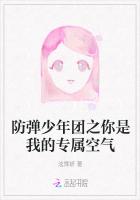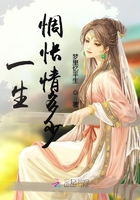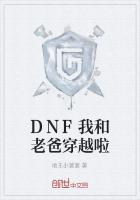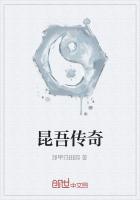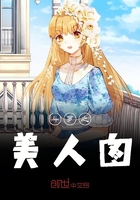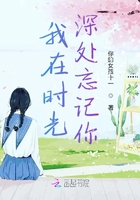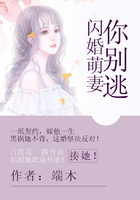In The Bluest Eye,the three whores’names-China,Poland and The Maginot Line-are suggestive of their refusal to be coopted。In their occupations as whores,the women bear the same relationship to patriarchy that the occupied territories of China,Poland,and France(the Maginot Line bearing a synecdochic relationship to France)had to Japan and Nazi Germany in World War II。A significant fact about China,Poland,and France is that“these places were not annihilated and their cultural values did not crumble。”Besieged though the women are,they are not merely walls to be broken or lines to be transgressed;the three whores are at war with men:“these women hated men,all men without shame,apology,or discrimination……Black men,white men,Puerto Ricans,Mexicans,Jews,Poles,whatever-all were inadequate and weak,all……were the recipients of their disinterested wrath。”The Bluest Eye,47.
In Tar Baby,Jadine is hard,as her name suggests,and self indulgent,seeking only to live in the present,disregarding her obligations to others and turning her back on her ancestral line。Her commitment to her own individual fulfillment rather than to a sense of solidarity with other black people is evident in her favoring of the interpretation of the mythic horse riders on the island told her by a neighbour:That rather than a hundred ex slaves there is only one French soldier on a horse。Her surname,Childs,indicates that Jadine is,in different ways,as immature as Son,who is accused by Jadine of thinking“like a kid”and whose name emphasizes that he has failed to wean himself away from Eloe。
The primary significance of the name Son is not to denote an individual self(“He did not always know who he was,but he always knew what he was like”)Toni Morrison,Tar Baby(New York,1981),142.,but to place that self in a context of relationship:Son is a son of Africa and also a son of the American black male experience,the“Nigger Jims……Staggerlees and John Henrys。Anarchic,wandering,they read about their hometowns in the pages of out of town newspapers”Tar Baby,143.。Like Pilate and any number of Morrison’s other characters,Son is dispossessed,permanently“out of town”,his name being his only connection with community and black tradition。
Naming can also imply a form of reciprocal relationship between namer and named。To name is to have power over the individual named。Like the biblical Eve in Sula,Eva both gives life and takes it away。Her power is symbolic of her function as the phallic mother to destroy as well as to create life。There is no question that she loves her children;she has sacrificed even her leg to provide for them;to relieve the baby Plum’s life threatening constipation,as Eva recites ritualistically and repeatedly,she has taken a lump of lard and“shoved the last bit of food she had in the world up his ass”Sula,29.。But Plum returns from war to his mother’s house a drug addict,helpless as an infant again。She murders him,burns him alive in his bed,because he“wanted to crawl back in my womb”。That Eva murders her son is an extension of the symbolic fact that she has already emasculated and rendered him infantile by calling him“Sweet Plum”。Tar Baby,Morrison implies,might have lived more effectively if Eva had not ridiculed his white skin and infantilized him in the same stroke with whimsical naming。And the Deweys would have been at least somewhat individuated,perhaps even normal in stature,if Eva had not reduced them,truncated their potential,through her assignment of the same name for all three:“What you need to tell them apart for?They’s all deweys”Sula,32.。Finally,the name is not even capitalized,and“them deweys”become a“trinity with a plural name”Sula,33.,indistinguishable in their appearance as in their childlike behavior。
In Beloved,Sethe’s name is one of the few in this novel chosen by a mother,and that name is a mark of blackness and of acceptance into tribe and culture。Whether this name is derived from that of the Egyptian god,Seth,or from the biblical Seth,it represents,like most of the names that Morrison designates as chosen,a sense of heritage and a context of relational identity。
Stamp Paid,born Joshua under slavery,has chosen and devised his own symbolic name,which represents a rejection of a tradition of white naming as well as a celebration of freedom。His name is also and more specifically a symbol of freedom from debt;because he suffered under slavery and because he“handed over his wife to his master’s son”Toni Morrison,Beloved(New York,1987),184.,he has paid in misery any obligation to humanity,he believes,although his continued activity as a conductor on the Underground Railroad would indicate otherwise。All African Americans are,in essence,“Stamp Paid,”Morrison implies。
Nicknaming and name calling are traditions relevant to the shaping of black character,which reflect patterns of caring and incorporation into community。Pauline is pained that she does not have a nickname and blames it on the family’s pity for her,for the“slight deformity”she suffers,left from a nail puncture in her foot when she was two years old。The nickname is an old and venerated tradition in the black community,and not having been given one,Pauline feels excluded。Pauline“never felt at home anywhere,or that she belonged anyplace”The Bluest Eye,88.。Without a nickname,Pauline feels unclaimed by her family in any special way。When the rich white family for which she works in Ohio assigns her a nickname-Polly-it serves in part to explain Pauline’s attachment to them:“They gave her what she never had”The Bluest Eye,101.and thereby claim her attention and her loyalty more than anyone in her family has done。The white family tells anecdotes about her,of how they could“never find anybody like Polly,”of how“she will not leave the kitchen until everything is in order”,and of how she is ultimately the“ideal servant”The Bluest Eye,101.。As a counterexample of the functions nicknames serve in black communities,Pauline,as Polly,illustrates the potential identity shaping purpose such naming provides。She desperately clings to her relationship with the Fishers,but fails to see in her daughter a similar need to be claimed in a special way。
Another meditation on the larger meaning of names and naming comes in a comic catalogue of the nicknames that constitute a distinctive feature of black culture,nicknames representative of yearnings,gestures,flaws,events,mistakes,weaknesses:Macon Dead,Sing Byrd,Crowell Byrd,Pilate,Beba,Hagar,Magdalene,First Corinthians,Milkman,Guitar,Railroad Tommy,Hospital Tommy,Empire State,Small Boy,Sweet,Circe,Moon,Nero,Humpty Dumpty,Blue Boy,Scandinavia,Quack Quack,Jericho,Spoonbread,Ice Man,Dough Belly,Rocky River,Gray Eye,Cock a Doodle Do,Cool Breeze,Muddy Waters,Pinetop,Jelly Roll,Fats,Leadbelly,Bo Diddley,Cat Iron,Peg leg,Son,Shortstuff,Smoky Babe,Funny Papa,Bukka,Pink,Bull Moose,B。B。,T Bone,Black Ace,Lemon Washboard,Gatemouth,Cleanhead,Tampa Red,Juke Boy,Shine,Staggerlee,Jim the Devil,Fuck Up,and Dat Nigger。
Most of the other characters in Tar Baby have at least two names,which Morrison indicates is symbolic of their fragmentation。Lost between the white and black worlds,Jadine is Jadine to her aunt and uncle but a more exotic Jade to the white Streets who have educated her and imbued her with their questionable values。Ondine is Nanadine to Jadine,but Ondine to the Streets,just as Sydney is Sydney to the person he calls Mr。Street,years of intimacy not being sufficient to challenge racial and class protocol。
Names are important,not only as ironic comments on the characters who bear them,but as emblems of the black community’s resistance to the white culture’s negation of its world。In Song of Solomon,geographical locations like Not Doctor Street and No Mercy Hospital(where,until Ruth Dead’s son was born,black people were denied admittance)are forms of counternegation of the white world that delimits the black one。They are symbols of black resistance,poignantly commenting on the yearning for some linguistic validation of black achievement and professional cachet。This reflection also registers the subversive resources of language;this subversiveness is a well known feature of language as spoken by the oppressed or socially marginalized。The prologue to Sula points out that the black neighborhood is called“the suburbs now,but when black people lived there it was called the Bottom”Sula,3.。This linguistic shift emphasizes how language can be and has been manipulated by those in authority to maintain their advantage and protect their positions,a concern developed in all Morrison’s work。
The title Song of Solomon suggests the biblical song of ancestral wisdom,and from the beginning the novel is presided over by the figure of Milkman’s forefather。Indeed,it has the epigraph:“The fathers may soar/And the children may know their names。”Song of Solomon is framed by the African American vernacular tradition of the flying African。The song Pilate sings to accompany Milkman’s birth is a variant of this Gullah folktale of the ancestor who flew back to Africa to escape the trap of slavery,and Milkman’s leap at the end of novel aligns him with Solomon。
The title of the novel The Bluest Eye pinpoints the focus of the novel Pecola’s tragedy resulting from her desire for blue eyes。“Blue”doesn’t only mean color。It has a deep meaning,referring to white culture。The single“eye”sounding“I”rather than the plural form“eyes”,suggests some kind of solitude and distance from the black tribe,black culture。
Names are of great importance in West Africa。The power of a name is strong in much of Africa and the diaspora。As Morrison has said in an interview with Thomas Le Clair:“If you come from Africa,your name is gone。It is particularly problematic because it is not just your name but your family,your tribe。When you die,how can you connect with your ancestors if you have lost your name?That’s a huge psychological scar”Toni Morrison,Rootedness:The Ancestor as Foundation in Black Women Writers(1950-1980)(New York,1984),28.。It is difficult in a discussion of Morrison’s works to ignore their preoccupation with names。In her novels,names function not only as designating,but as delineating the personalities of the characters ironically or symbolically,resisting the hegemony of white society and revealing the themes of the novels。
References:
[1]Morrison,Toni。The Bluest Eye。New York:Washington Square Press,1970.
[2]Morrison,Toni。Sula。New York:Vintage International,1973.
[3]Morrison,Toni。Song of Solomon。New York:Penguin Group,1977.
[4]Morrison,Toni。Tar Baby。New York:Penguin Group,1981.
[5]Morrison,Toni。Beloved。New York:Knopf,1987.
[6]Bouson,J。Brooks。Quiet as It’s Kept Shame,Trauma,and Race in the Novels of Toni Morrison。Albany:State University of New York Press,2000.
[7]Furman,Jan,ed。。Toni Morrison’s Song of Solomon,A Casebook。New York:Oxford University Press,2003.
[8]Gates,Henry Louis ed。。Toni Morrison:Critical Perspectives Past and Present。New York:Amistad,1993.
[9]Grewal,Gurleen。Circles of Sorrow,Lines of Struggle:the Novels of Toni Morrison。Louisiana:Louisiana State University Press,1998.
[10]Harding,Wendy and Jacky Martin。A World of Difference:An Inter cultural Study of Toni Morrison’s Novels。Westport:Greenwood Press,1994.
[11]Karenga,Maulana。Introduction to Black Studies。Kawaida Publications,1984.
[12]McKay,Nellie Y。。Critical Essays on Toni Morrison。Boston:G。K。Hall&Co。,1988.
[13]McKay,Nellie Y。ed。。Approaches to Teaching the Novels of Toni Morrison。New York:The Modern Language Association of America,1997.
[14]Middleton,David L。,ed。。Toni Morrison’s Fiction:Contemporary Criticism。New York:Garland Publishing,1997.
[15]Morrison,Toni。Rootedness:The Ancestor as Foundation in Black Women Writers(1950-1980)。New York:Anchor Books,1984.
[16]Peach,Linden。Toni Morrison。New York:St。Martin’s Press,2000.
[17]Rigney,Barbara Hill。The Voices of Toni Morrison。Columbus:Ohio State University Press,1991.
[18]Steinberg,Stephen。The Ethnic Myth:Race,Ethnicity,and Class in America。New York:Atheneum,1981.A Complete Rejection of Men
——An Analysis of Katherine Anne

![[欧洲]中世纪教育思潮与教育论著选读(下)](https://i.dudushu.com/images/book/2019/09/28/055552000.jpg)




